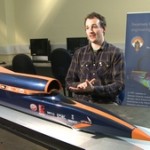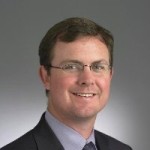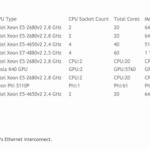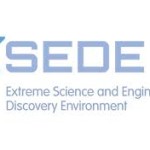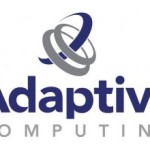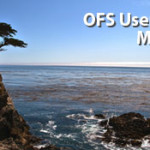In a bid to break the world land speed record of 1000 miles an hour, the UK’s largest distributed general supercomputing network is challenging schools in Wales with the ultimate science project. “Based on the Bloodhound Supersonic Car, this innovative competition will provide pupils with hands on experience of engineering tools and systems through access to technology usually used by Welsh academics, PhD students and businesses.”
Archives for January 2015
Free Test Drive: Nvidia Tesla K80 Accelerator
“Over at the Nvidia Blog, Bryce Mackin writes that the company is offering a free GPU Test Drive for their new Tesla K80 accelerator. With the test drive, you can run your own application on one or more K80s or try one of the preloaded applications, including AMBER, NAMD, GROMACS and LAMMPS.”
Slidecast: UberCloud – From Experiment to Marketplace
“After 18 months of developing Docker container technology into high performance application containers for engineering and scientific simulations, UberCloud announces the availability of high performance application containers on its online UberCloud Marketplace, for ANSYS Mechanical, Fluent, CFX, Workbench, Icepak, EM, LS-DYNA and LS-PrePost, for CD-adapco STAR-CCM+, and for OpenFOAM, and more in the pipeline. These application containers are portable on all in-house and cloud environments and allow seamless and transparent on-demand access to and use of applications and data in the cloud, with a look and feel identical to your workstation.”
Podcast: Supercomputing the Evolution of Flowers
In this podcast, scientists describe how they are using TACC supercomputers to study the evolution of flowers.
Argonne Training Program on Extreme-Scale Set for August, 2015
Argonne will host their 2015 ATPESC Training Program on Extreme-Scale Computing for computational scientists. The event takes place August 2-14 in Chicago. “The program provides intensive hands-on training on the key skills, approaches and tools to design, implement, and execute computational science and engineering applications on current supercomputers and the HPC systems of the future. As a bridge to that future, this two-week program to be held at the Pheasant Run Resort in suburban Chicago fills many gaps that exist in the training computational scientists typically receive through formal education or shorter courses.”
Cambridge University Turns to Xeon Phi
The University of Cambridge plans to transition their HPC workloads to Intel’s Xeon Phi co-processors. The deal will see Intel work along with Dell staff to upgrade the high performance infrastructure used to serve research departments within the university, working in areas such as genomics and astronomy, as well as a growing number of businesses with large compute demands.
University of Houston Installs Opuntia Cluster
The University of Houston (UH) is adding a new, state-of-the-art supercomputer to its arsenal of research tools. With 1860 compute cores, the new Opuntia cluster will be used primarily for scientific and engineering work. The acquisition of this new system marks the start of a new era of supercomputing not only for the University of […]
Podcast: Using Allinea Programming Tools to Speed XSEDE Supercomputing Research
“In my humble opinion, I think that debuggers and profiling tools are far too infrequently used. And it’s not because they’re not there. It’s because people just either don’t know about them, don’t do training on them, or don’t know how to use them. We’re in a state where we have less cycles than we’ve ever had per request, right? So being able to take full advantage of those cycles by having optimized code and optimized run patterns is crucial. Otherwise, you’re just not going to be able to get your work done and the science won’t get done.”
Adaptive Computing Rolls Out Moab 8.1
Moab 8.1 systems management software includes a revamped Web-based user interface with bolstered reporting and tracking capabilities that give greater insight into the job states, workloads and nodes of a HPC system; massive performance gains and improvements in scale; and system improvements to achieve elastic computing to expand to other resources as workloads demand.
Registration Opens for OFS Developer Workshop and User Group
Registration is now open for 11th annual International OFS Developers’ Workshop and the 2015 OFS User Group (formerly known as IBUG) Workshop. Both events are being held the week of March 15, 2015, at the Marriott Hotel in Monterey, California.

